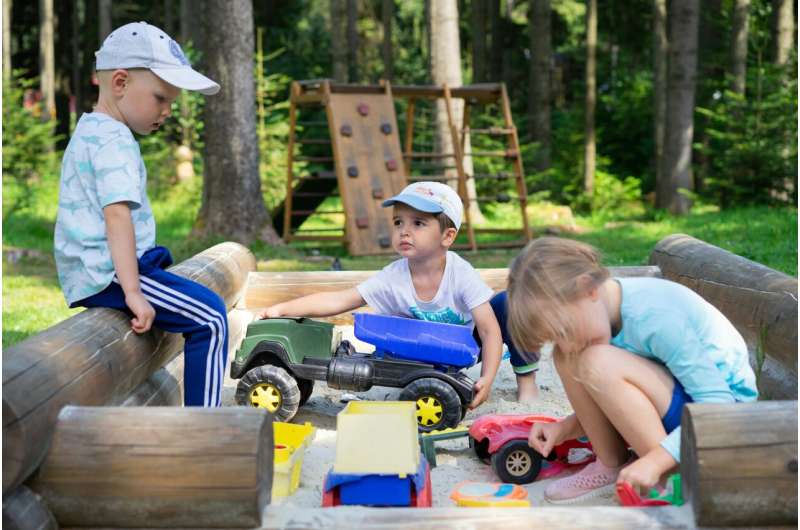This article has been reviewed according to Science X's editorial process and policies. Editors have highlighted the following attributes while ensuring the content's credibility:
fact-checked
peer-reviewed publication
trusted source
proofread
Early life exposure to weed pollen could increase childhood asthma risk, says study

A study published in the European Respiratory Journal has found that children who are exposed to tree and weed pollen in urban environments are at increased risk of respiratory health problems, including asthma.
While green areas in urban settings decrease exposure to air pollution, allow kids to be active, and offer positive contact to a diverse microbiota—which in turn may help the positive development of a child's immune system—they can also lead to the development of childhood asthma. Thankfully, trees can help mitigate this effect to some degree, thanks to their canopy.
"We found that tree canopy offers some protective effects towards the development of asthma in children. However, this protective effect goes away when there is increased exposure to weed pollen," says lead author Éric Lavigne, an Adjunct Professor in the School of Epidemiology and Public Health in the Faculty of Medicine at the University of Ottawa.
Researchers tapped into the Ontario ASTHMA cohort database, analyzing data over an eight-year period to identify cases of childhood asthma between birth and the age of six. Just over 13 percent of the 214,000 mother-child pairs included in the study were diagnosed with childhood asthma. Researchers measured environmental exposure with the normalized difference vegetation index (NDVI) plus tree canopy estimates within a 250-meter radius from the child's postal code at birth.
The surprising findings show that the development of green spaces in urban environments increases pollen exposure and lessens the protection garnered from tree canopies.
With the increased focus on increasing urban vegetation, Lavigne says the public should be aware of the effect trees in cities can have, including the consequences of pollen on children's respiratory health, particularly if it is the cause of an increased risk of asthma.
"This could have an impact for urban planners and public health officials that work on redesigning our urban centers," adds Lavigne, who is also a Senior Epidemiologist at Health Canada. "Along with weed pollen control programs and deciding when to plan specific trees, it will be important to consider tree species that minimize allergic pollen in the air."
More information: Cristina Stanescu et al, Early life exposure to pollens and increased risks of childhood asthma: a prospective cohort study in Ontario children, European Respiratory Journal (2024). DOI: 10.1183/13993003.01568-2023


















